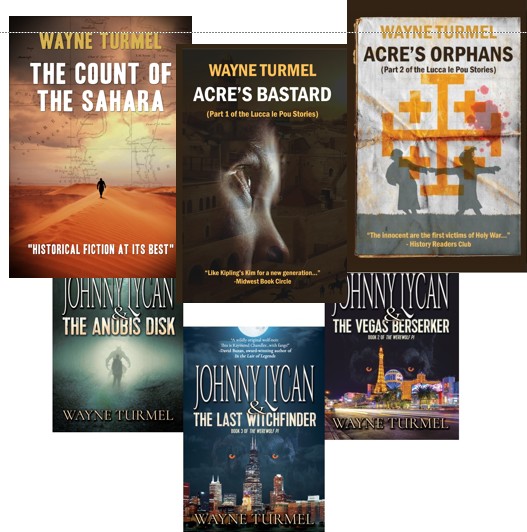Like any historical fiction fan, I have my favorite periods to read about. I also have those about which I couldn’t care less (Civil War 1.0. Regency…) What I really enjoy, though, is reading about subjects I don’t know much about. Of course I’m less thrilled to find out some of those “historical” periods were around the time I was born. Ahem.
Fellow Black Rose Writing author Marles Manley Broadhead has written an engaging, entertaining and it turns out, deeply personal tale of auto racing in the middle of the 20th Century. Trophy Girl is a fun coming-of-age tale. I’ll let her tell you about it.
Okay lady. Who are you, and what’s your deal with auto racing?
I was 17, finishing my first semester at Wichita State University, when a family friend asked what I planned to do with my life. I said, “I want to be a writer.” My stepfather, who overheard, turned to us and said, “You can’t be a writer,” as if I couldn’t be serious. And I got it—no one was beating down the door of a white bread, midwestern teenage girl with a midnight curfew for thoughts on the human condition. But I’d written my first book at 10 (a school assignment) and developed an irreverent enough sense of humor to become the family’s funny-poems-for-occasions go-to gal. So I kept taking classes, and eventually I enrolled in their MFA program.
Not long after I started publishing poems and then short stories, my stepdad laughed self-consciously and said, “I guess you’ve proved me wrong.” But I wasn’t feeling it yet. As Vivian in the movie Pretty Woman says, “The Bad Things Are Easier To Believe. You Ever Noticed That? It was 32 years after starting my debut novel, Trophy Girl, I got brave enough to send it to a small but rapidly growing publisher, Black Rose Writing. The story inspired by none other than my step-father’ decades-long dirt-track racing career, and received the William Faulkner Second Award for Novels.
I remember as a kid going to dirt-track stock car races in Canada and having a blast. What’s Trophy Girl about?
It’s summer 1957, and when
fourteen-year-old orphan Sandy Turner goes missing—along with one of her late mother’s hidden scrapbooks—Aunt Maggie can think of only one place the girl might have gone. Frank Haggard, the race-car driver in those yellowing news clippings, assumes the girl claiming to be his daughter is a fan acting on a dare—until Aunt Maggie tracks them down. Memories of his annulled marriage to Maggie’s sister flood over him, and the timing couldn’t be worse. With the first-ever National Championship for stock cars a week away, the last thing he needs is a child-custody battle with Maggie—as determined as she is beautiful. When the car he’s planned to pilot is turned over to a younger driver, Frank and Maggie make the riskiest deal of their lives—her savings for a race car, but if Frank wins, he gives up any claim to his daughter.
FunFact: My step father won that first national in 1957, and again in 1958 and 1968. Trophy Girl launched at the 64th running of the Grand Nationals at the Fairgrounds in Hutchinson, Kansas. There’s a photo in the back of the book of him standing beside the famous Blue No. 55 with the trophy sitting on the hood.
Another FunFact: My father, stepfather, and uncle were all race car drivers named Frank and knew each other. My father Frank Manley raced with Sports Car Club of America, my stepfather Frank Lies raced stock cars and super-modified, and my uncle Frank Dickerson raced midgets. I spent hundreds of weekends in grandstands eating track dust while glued to the action on the tracks and straining to hear the “grown-up” conversations my mother carried on with other wives and girlfriends. Those memories and a long shelf of scrapbooks took care of my research, plus I relied on subject-matter experts for particulars. These were men who had raced with my stepfather and whose incredibly extensive knowledge and memories made it possible for me to write even more authentically about those races, cars, and men who were local and regional heroes.
Totally unfair question, but it’s my blog and I can do what I want. What’s your favorite scene?
While I loved working out the coming of age, conflicts, and romantic elements of the novel, I have to say writing the descriptions of the six races along the circuit to the national was some sort of total immersion experience. I love hearing from drivers who say the action and emotions in those scenes are exactly how they remember it—the taste of grit, smell of hot oil on a track that gets harder and slicker as the night wears on, the sparks of metal skidding along a concrete wall, vibrations as cars “trade paint” until one pulls ahead or one or both spin out of control. And yet, the scene that made a guy friend of mine cry was the quietest moment, when near the end of the book, after all the subterfuge, confusion, and legal difficulties, with nothing yet resolved, Frank walks up into the grandstand just before the grand national races begin and fastens a chain with a small gold cross around Sandy’s neck—the only thing left behind when her mother’s family kidnapped her away from him and ended the marriage.
How can people find you and learn more?
Like most authors today, I’m wafting about in the ether (see links below to your favorite satellites), with my home base my website: https://marlisbroadhead.com. There you can check out reviews of Trophy Girl as well as my nonfiction book Is that Your Mother Calling? Advice that Echoes Down Through the Ages (based on hundreds of poignant, hilarious, and even wacky responses to a survey I sent out while teaching written communication at Iowa State University.) There are also samples of my poetry, some novel excerpts, and a link to my blog, https://heartlandstoriesandpoems.blogspot.com
And of course you can sign up for my newsletter, Musings & Mirth, and visit my Book Shop where you will also find my poetry chapbook, The Mendocino Poems, began when I taught on the coast and started the Mendocino Coast Writers Conference (https://mcwc.org). This will be its 35th year, July 31st through August 2nd, and while I feel fortunate to be writing fulltime now on a modest horse ranch in Kansas, I’m always eager to return to the redwoods and incredibly beautiful Mendocino coast.
https://linktr.ee/marlismanley
https://www.facebook.com/marlismbroadhead
heartlandstoriesandpoems.blogspot.com
https://www.instagram.com/marlismanleybroadhead_author
Whether your tastes run to historical fiction or award-winning urban fantasy, check out all my work on my Amazon Author Page, and don’t forget to sign up for my newsletter.



